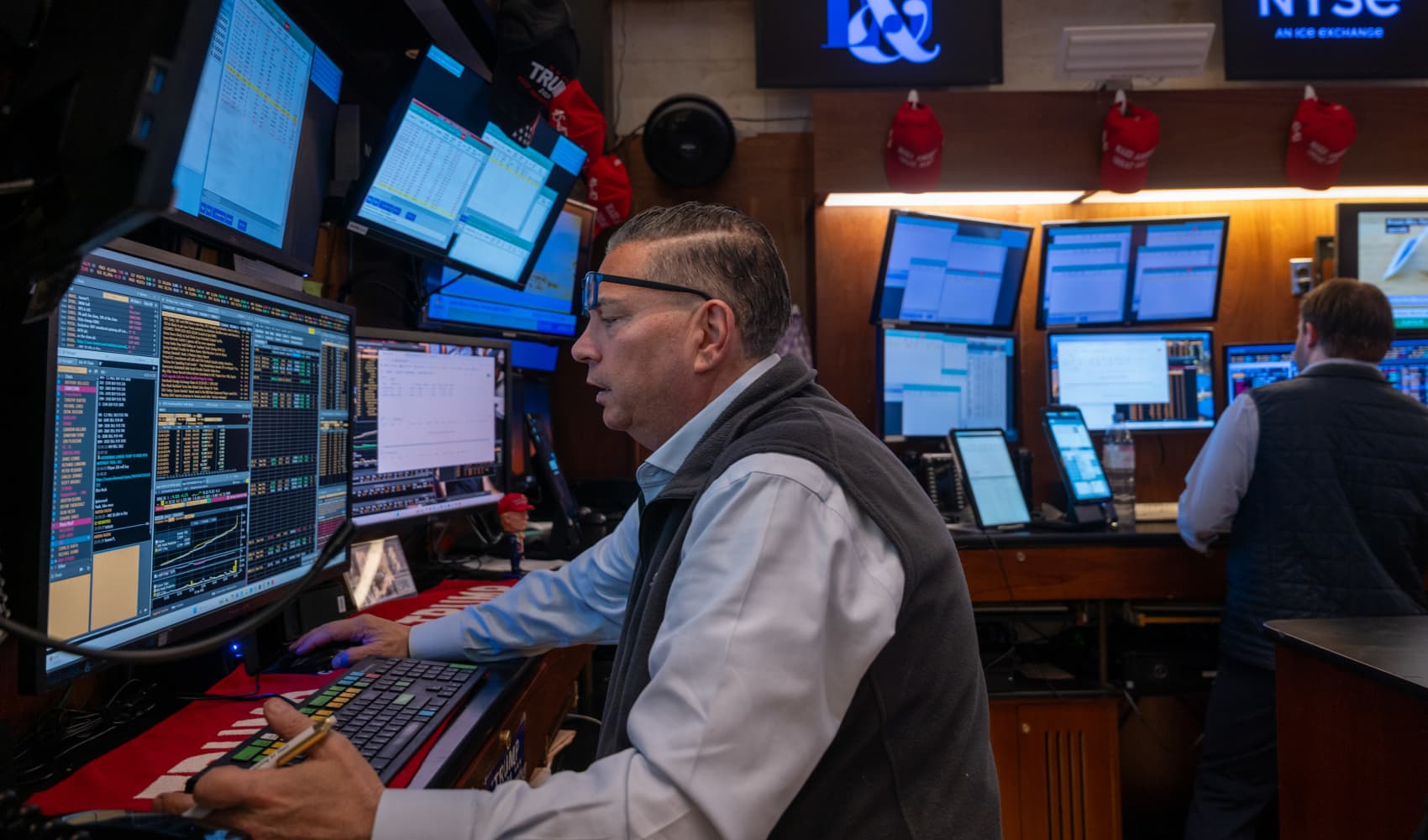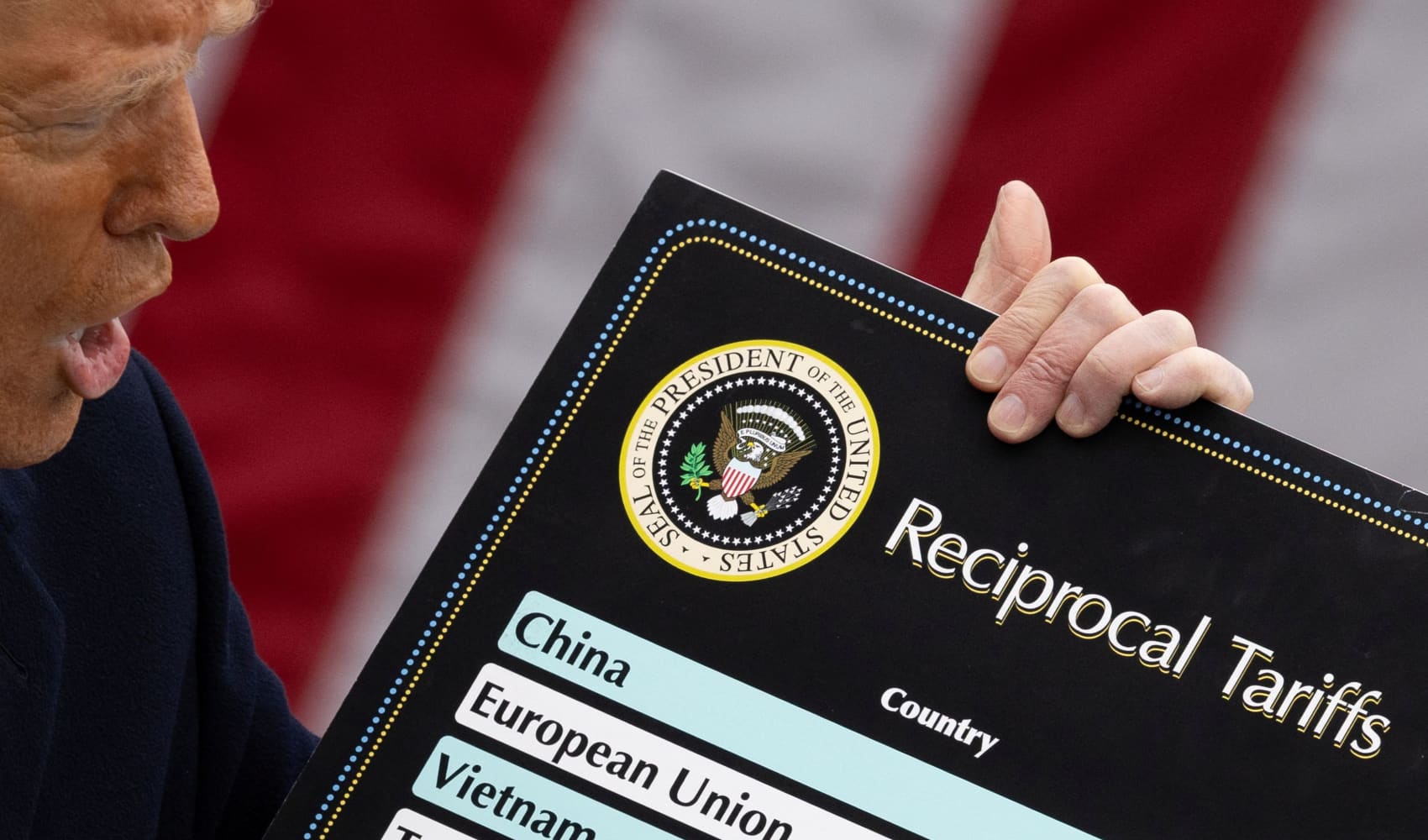
he DJI Mavic 3 Cine Drone in action on November 15,2021 in Guildford, England.
- DJI was formed in 2006 out of a college dorm room by its founder Frank Wang. The company currently has over 14,000 employees, 25% of which are research and development-based.
- DJI is just one of many tech companies that has found its products used on the battlefield.
- In December 2021, the Shenzhen-based company was placed on an investment blacklist by the U.S. government over its alleged ties to the surveillance of Uighur Muslims in China's Xinjiang region.
The world's biggest drone maker DJI found itself embroiled in the Russia-Ukraine conflict last year.
In March, three weeks after Russia's invasion began, a Ukrainian minister called out DJI on Twitter for being complicit in the war.
Get top local stories in Connecticut delivered to you every morning. Sign up for NBC Connecticut's News Headlines newsletter.
DJI is just one of many tech companies that has found its products used on the battlefield.
The Russian military allegedly used its drones on the battlefield. It includes the Mavic 3 drone, and Aeroscope, a drone-detection platform that enables users to identify the location of a drone operator.
DJI — also known as Da Jiang Innovations — denied the allegations and insisted its products are designed for civilian use, and "do not meet military specifications."
"We certainly don't support their use for combat," Adam Welsh, DJI's Head of Global Policy, told CNBC.
"The unfortunate thing is that it's a very reliable product. So, it's become a product of choice, even for those who want to use a drone inappropriately."
Money Report
DJI suspended its product sales to Russia and Ukraine in April. That suspension continues to be in place.
How popular is DJI?
The company is not backing down despite challenges, and continues to aim for the skies.
DJI currently dominates more than 70% of the global drone market. According to a report by Drone Industry Insights, the market is expected to grow from $30.6 billion in 2022 to $55.8 billion by 2030.
The Shenzhen-based company was formed in 2006 out of a college dorm room by its founder Frank Wang. It started out by building drone control systems, which were sold to hobbyists building their own drones. By 2013, the company released its first ready-to-fly drone, the Phantom 1.
DJI currently employs over 14,000 employees.
According to Welsh, 25% of DJI's employees are research and development-based, a testament to the company's focus on innovation.
From filmmaking, agricultural seeding to search-and-rescue, DJI drones are used for many purposes spanning diverse industries.
U.S. investment blacklist
The use of DJI technology in military circumstances is not the first major concern that has plagued the company's meteoric rise.
In December 2021, the U.S. government added the drone manufacturer, as well as numerous other Chinese firms, to its economic blacklist. The company was blacklisted because of its alleged involvement in the surveillance of Uighur Muslims, an ethnic minority in China's Xinjiang region.
The blacklist also bans American investors from buying or selling shares in the company.
"It's very unfortunate. We've stated unequivocally that we have had nothing to do with treatment of Uighurs in Xinjiang," Welsh said.
The drone manufacture has also stepped up lobbying efforts against a national security ban by Washington, which alleged last year that it was a "Chinese military company."
"The truth is that we've gone through numerous audits of our firmware and of our products," he said, adding that the company has cooperated with U.S. authorities and "in no case have they found the data is going anywhere it shouldn't."
A drone's firmware is what the drone uses to control all the important operations, like flight, battery management and data protection.
Security concerns
Still, DJI's technology is not fail-safe.
Paolo Stagno, a cyber security expert, said there is a black market of modified DJI drones' firmware.
"Most of the pilots that want to unlock the drones download such firmware in order to remove limitation about the height and the distance from the drone operator," Paolo told CNBC.
Beyond modification of drones, the DJI Go App for Android systems also came under scrutiny in 2020 by security researchers for having vulnerabilities that allow "unexpected data transmissions."
DJI has implemented improvements to their data security, including bringing a local data mode to their drones, which prevents transmission of all drone data over the internet.
"It means when you're flying one of our product, you don't even need to connect to the internet. You couldn't even transfer data through a mishap or a mistake. You're literally hermetically sealed off from the internet."
In addition, Welsh said all users have to opt in to share their data with DJI, even flight log data.
"We make sure we're keeping abreast of those and put fixes in place as soon as possible," Welsh said. "If they've broken any existing laws in their country, that is really a matter for the police to take on."






